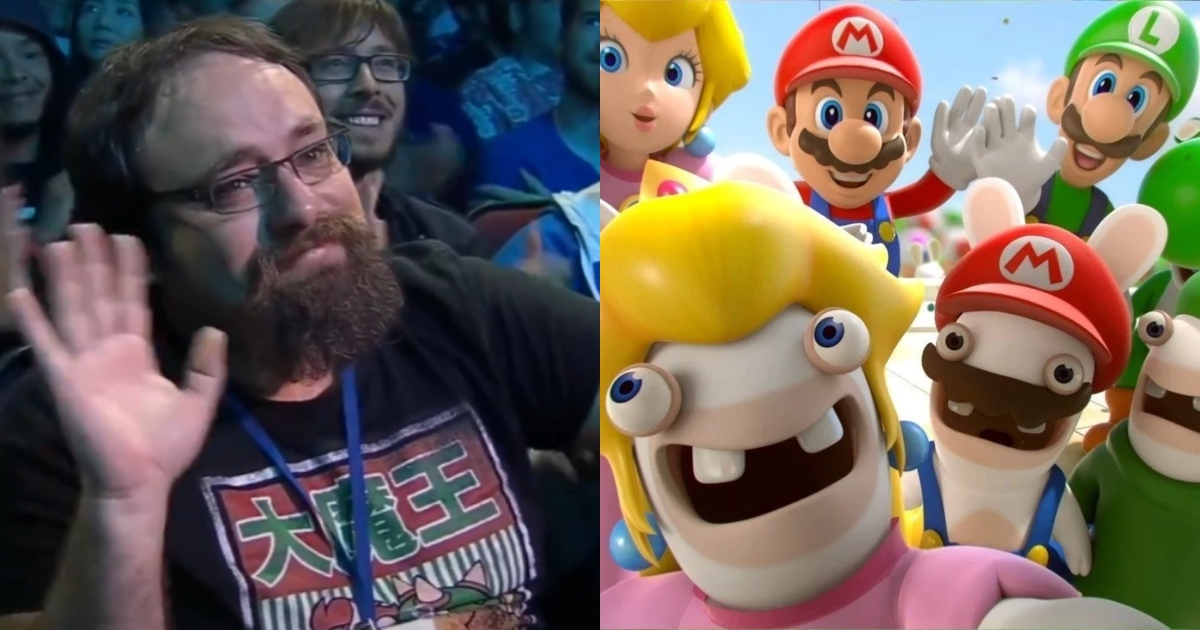Veteran game designer Davide Soliani leaves Ubisoft: look back at his nearly 30-year career
Davide Soliani has decided to leave Ubisoft, where he spent most of his career. The Mario + Rabbids creative director is now preparing for the next chapter of his journey.

Left: Davide Soliani at E3 2017 (via IGN) / Right: Mario + Rabbids: Kingdom Battle
Soliani shared the new on X, saying that he has “decided to leave Ubisoft to embark on a new adventure.” He added that he can’t share more details now, so it is unclear whether he’ll be joining another game development studio or starting a new venture.
Ubisoft’s official account thanked the designer for his “incredible work” and sent him “best wishes for the worlds you’ll journey through next.”
Hi all folks. After 25 years, 11 of which beautifully spent working with Nintendo on Mario+Rabbids along the company of our incredible community of players, I have decided to leave Ubisoft to embark on a new adventure. I can’t say more now. Thanks a lot for everything, truly 🙏❤️ pic.twitter.com/nafgBC2bu8
— Davide Soliani (@DavideSoliani) July 24, 2024
Davide Soliani started his career in 1997 as a game designer at Ubisoft. According to MobyGames, his first credited project was Rayman for Game Boy Color. He then became a lead game designer of The Jungle Book: Mowgli’s Wild Adventure and Rayman M (Arena).
In the early 2000s, Soliani was promoted to studio manager of Ubisoft’s Milan office, where he oversaw the production of Tomb Raider: The Prophecy, Tom Clancy’s Rainbow Six 3: Athena Sword, and Beyond Good & Evil.
He worked briefly at Kuju on Battalion Wars, a real-time tactics game for GameCube, before returning to Ubisoft in 2005. His late 2000s portfolio includes games based on films like Open Season and James Cameron’s Avatar.
After that, Soliani became the creative director on titles such as Rabbids: Alive & Kicking, Just Dance 4, and Just Dance 2014. His most recognized work, however, was directing Mario + Rabbids: Kingdom Battle and its sequel, Sparks of Hope.
When Nintendo legend Shigeru Miyamoto announced the game at E3 2017 and presented Soliani before the audience, he burst into tears of joy (see the image above).
Launched in August 2017, Mario + Rabbids: Kingdom Battle received positive reviews from critics and players and reached over 10 million users globally. Its sequel, despite warm reception, underperformed commercially at launch, but went on to sell nearly 3 million copies in just over a year.